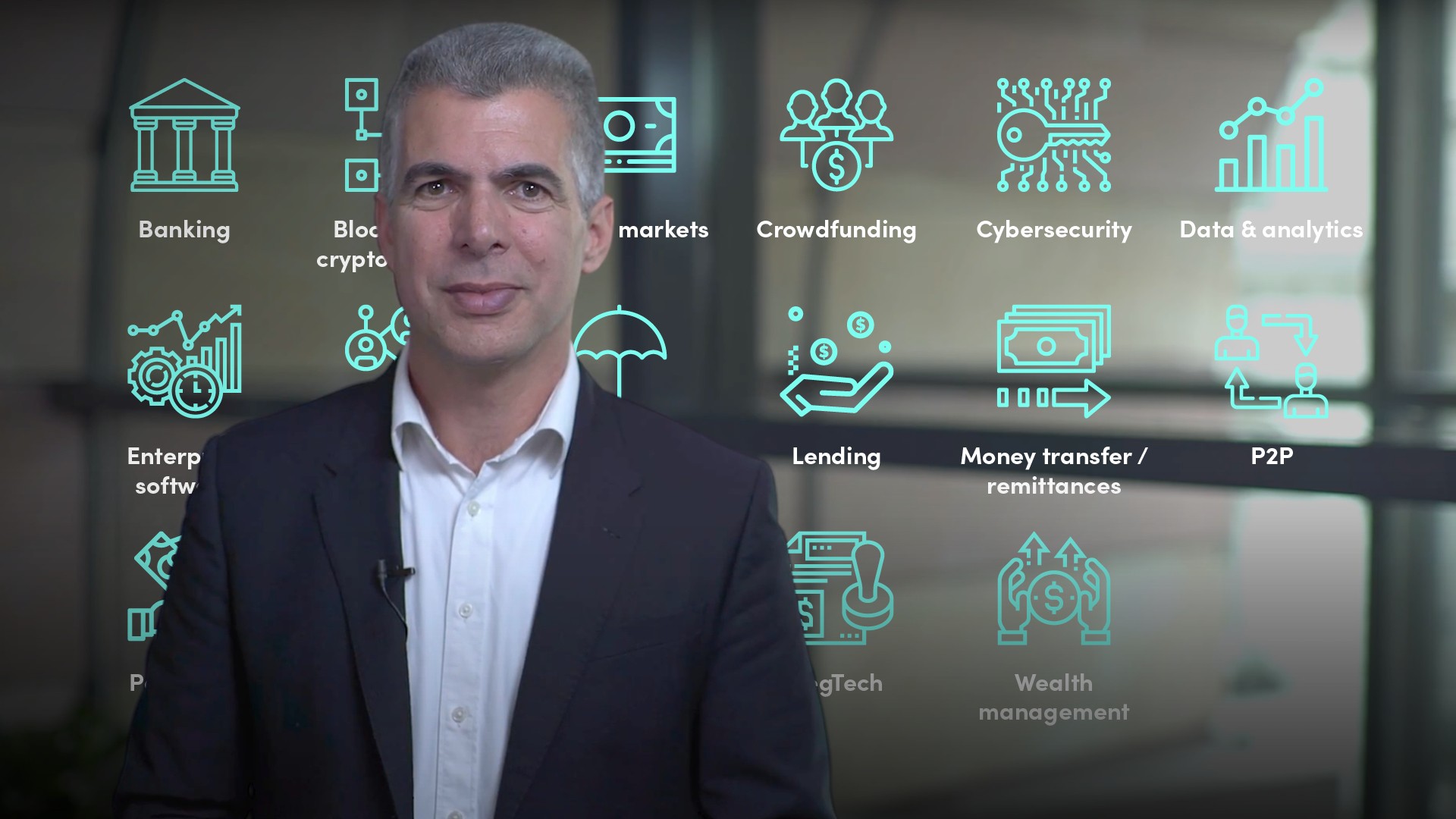
Introduction to Fintech

Nir Vulkan
25 years: Financial technology & algo trading
Nir explains the origin of Fintech as a regulation aid and outlines some example applications in risk management.
Nir explains the origin of Fintech as a regulation aid and outlines some example applications in risk management.

Introduction to Fintech
9 mins 34 secs
Key learning objectives:
Define Fintech
Explain how the Government encourages innovation and its benefits.
Discuss the ways in which Fintech is used to reduce risk and uncertainty.
Overview:
Fintech is an emerging industry that utilises new technology to provide more efficient financial and banking services. This includes the aiding of start-up businesses. Ultimately inviting a whole new wealth of innovation into the economy.
What is Fintech?
Fintech is financial technology. It is the development of technology and innovation that strives to compete with traditional financial techniques in the delivery of its financial services.
How does the Government encourage innovation?
The Government instructs the Financial Conduct Authority to induce innovation. The FCA hence attempts to make the city more competitive by working with start-up businesses through their ‘Sandbox’ scheme. Small start-ups are assigned a regulator that:
- Addresses regulatory issues
- Creates new products
- Creates new services
By doing so, consumers benefit in the long-run due to greater choice and higher quality of products/services. This increase in competitiveness therefore benefits the economy overall.
How can Fintech be used to offset risk and uncertainty?
During financial transactions, generally one party is subject to greater material knowledge than the other, creating an asymmetry of information. This is evident in the example above as the investments made into start-ups may not work out well. Hence, there is a certain risk and uncertainty associated. Fintech aims to tackle these hurdles. Examples include:
- Trip Advisor – Dramatically changed the way the travel industry, hotels and restaurants operate. Users can share information with each other digitally when comparing and critiquing certain places. Businesses are forced to be efficient as they know bad reviews will be posted deterring future business, which can be damaging
- Prodigy Finance – Provide loans to post-graduate students to study at a higher level. These people would generally be rejected a loan due to their absent credit scores. However, Prodigy Finance realised they are most willing to pay back and generally have successful careers in the future, mitigating that potential risk of defaulting on loans.
The same case can be made for young drivers. However, with the introduction of ‘The Box’ which records speed and driving decisions, it creates certainty on behalf of the insurance company.
What are some examples of Fintech?
Prop-tech is a subset of Fintech and is tailored to the real-estate market. It uses information technology to guide individuals and companies with their research, buying, selling and management of real-estate.
Similarly, Insurtech focuses on the Insurance Industry and is a trillion-dollar industry. Both boost the economy. In 2018 alone, there was over a hundred billion dollars invested globally in Fintech, a lot of it in China and in the US.

Nir Vulkan
There are no available Videos from "Nir Vulkan"

